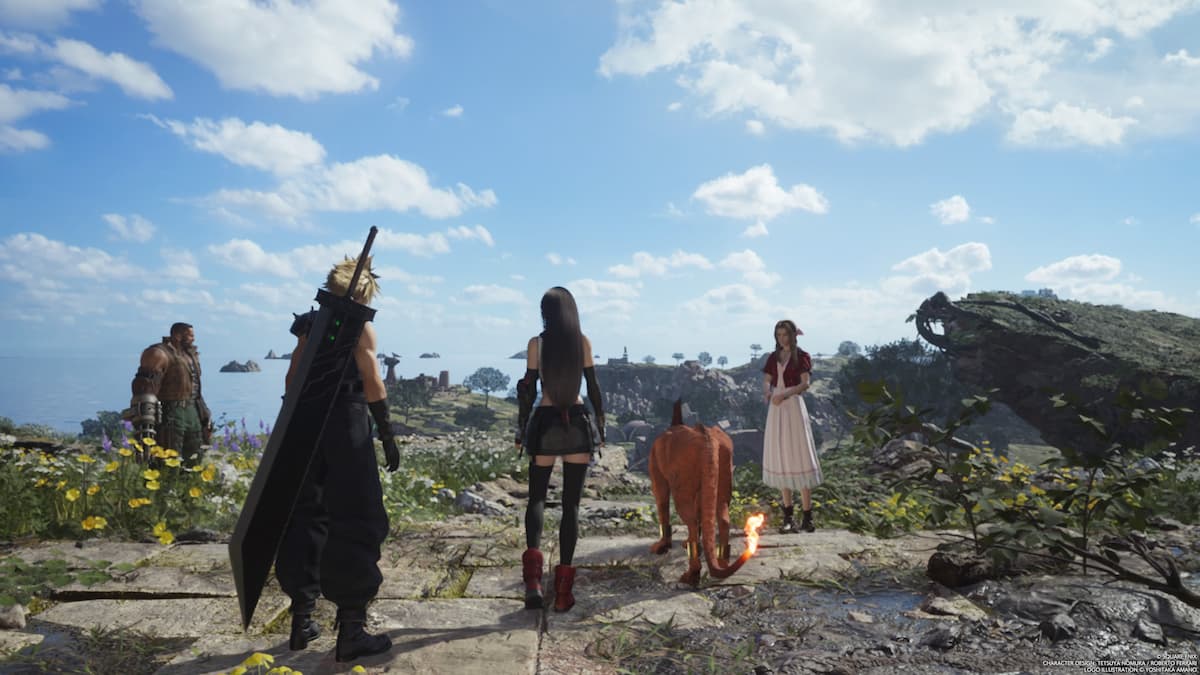
I’ve spent some time making an attempt to assume my manner spherical this, however there’s no manner I can discuss Rise Of Industry with out discussing its intro cinematic. Or extra particularly, the voice that narrates it. “For an enterprising tycoon,” it smarms, as daybreak breaks over a sleepy city swaddled in polygonal pine forest, “each new day brings new opportunities in your quest for success.”
It’s the kind of voice that belongs to somebody known as Chester. Chester Coinsman. Chase Brashford. Todd Winnigan. Whoever he’s, he’s a VP for an American software program firm, promoting revolutionary cradle-to-grave options to blue-chip gamers within the credit score administration sector. And that is, for sure, his Webinar Voice.
“Exploiting gaps in the market and meeting demand is all in a day’s work for a canny entrepreneur,” boasts Todd, over footage of little vehicles pootling round folksy, tree-strewn streets. All his hard-edged enterprise chat is counterbalanced by this cute, small-town bustle: it’s the busy world of Richard Scarry, considered by way of the nice and cozy, tilt-shifted lens of Cities: Skylines. The music is borrowed from the identical game – the traditional ‘municipal whimsy’ suite of parping horns, meandering woodwinds and fluttering strings.

Ah, the quintessential small city: sleepy, healthful, and invariably the setting for the primary few pages of some dismal coin bastard’s biography
But Chester talks straight over it, chewing his manner by way of the script like a enterprise wasp. “Expanding your business is necessary if you are to keep up with the times,” he warns, smugly, and I can simply see him together with his completely degree tooth and his light eyes, at a breakfast assembly in an costly but characterless lodge. Expansion is critical, competitors is life: Chase simply can’t see issues another manner.
And you wouldn’t wish to fuck with Brent. You see, whereas his voice radiates all of the vocal livery of friendliness, you’d by no means mistake it for that of a good friend. It’s as reassuring as a fantastic white shark, cruising from the pea-green murk of a kelp forest, with a celebration hat perched on its cartilaginous missile-cone of a cranium. Dale is out to earn cash, and also you’ll be sorry when you overlook that.
Adorable polygonal factories plop down from the sky, already burping cheery puffs of smoke from their chimneys, and Kent pipes up once more. “Badly placed polluting industry will be sure to harm your reputation,” he chides, as if from behind a wagging finger, “but a well-targeted PR campaign will soon have those green towns and villages back on side and accepting your goods”.
It’s a hell of a line to unpack. There’s nothing unsuitable with polluting industries, Blunce is saying – simply watch out to place them out of sight. And in the event that they find yourself upsetting of us? Nae hassle. Just chuck “PR” on the little folks, till they cease caring and get again to purchasing tins of used brute grease, like good customers.
“All that’s left to worry about is what you’ll be producing next,” soothes Gurk, reminding us of the proper mindset of a Business Person. And why not, eh? The cities are fairly, the fields are inexperienced, and there’s no purpose to query the elemental necessity of limitless progress and consumption. We’re simply giving the customers what they need, proper? And if we get wealthy in serving them, effectively shucks, I suppose we earned it.
The voiceover has now reached a gentle crescendo. “For you might be an industrialist,” concludes Bleg, with visceral relish, “and success… is in your blood”. In your blood. Until now, I visualised this speech being given over a meticulously austere meal, by a person with an excellent go well with and the final aura of a Ken doll owned by Dorian Grey.
But this line is one thing else. This is Chester in his lodge room, the night time earlier than the Big Pitch. He’s screaming the phrases hoarsely right into a mirror, eyes watery, glowering by way of a masks long-established from uncooked rooster pores and skin. He’s bare, with pink on him, and there is likely to be a person useless on his balcony. You’re an industrialist, man! It’s in your fucking blood!
Alright. OK. We’re 600 phrases into the evaluate and also you most likely need me to start out speaking concerning the game quite than simply getting more and more bizarre and political. But there’s a level to all this. You see, I’m not knocking whoever wrote the copy for Rise Of Industry’s intro video, or the artist behind the voiceover. Its cutthroat jargon and cutesy visuals are an ideal encapsulation of the game’s premise: ie, to simulate a fantasy world the place you’ll be able to benefit from the thrill of commanding capital, with out anybody getting fully fucked over.
In the world of Rise Of Industry, companies exist to satisfy the fundamental drive of shopper demand. The game presents you with a sprawling map populated with a number of cities, with visuals paying homage to Transport Tycoon Deluxe, however with a a lot slicker UI. It’s your job to search out out what merchandise these cities want, then construct industries on their outskirts to provide them. Where merchandise are extra sophisticated, you’ll be organising multi-tiered manufacturing chains, a la Anno 1800 or Factorio, to assemble them from uncooked supplies. And then, together with your factories in place, you’ll construct transport networks – the whole lot from vehicles to zeppelins – to get your completed items to market.

I’ll say this – the maps are correctly monumental. This is a couple of quarter of a medium map, and the most important dimension dwarfs it. As a consequence, RoI wolfs down RAM – I’d suggest taking part in with 16GB minimal.
That’s it! There’s no want to fret about constructing residential districts or supplying your services with a workforce, neither is there any buggering round with municipal insurance policies, tourism, or any of the opposite mainstays of city constructing. You simply make the factories, arrange the transport hyperlinks to take their output to cities, then use the sale proceeds to make extra factories. It certain is an increase of trade.
There’s issues, for certain: because the map’s cities mature, their preliminary calls for wane and are changed with extra advanced appetites. While you would possibly begin up as a fish baron, for instance, you’ll quickly wish to begin producing extra intricate items, because it gained’t be lengthy earlier than these pesky, heavy-browed customers are hooting and panting for tinned meals and tellies.
The game has a sublime analysis system that matches its tempo effectively, unlocking new manufacturing buildings at common intervals. It’s a bit like summertime on the zoo, the place they freeze a load of berries into bins stuffed with ice for the bears to take pleasure in because the blocks soften. Only on this metaphor, the fruit is know-how, and the bears are businessmen. What a hell of a psychological picture I’ve now.
There are a couple of random occasions and disasters to bother you too, however they’re not notably fascinating. Mostly, they boil right down to a sudden gulp of cash taken out of your treasury, with severity decided by issue setting.
And then there’s the air pollution system, which is just about what you’d count on: “naughty” buildings like factories or coal mines unfold generic blight tiles round them, and make close by shopper populations sad. The answer is to both place magical anti-pollution buildings of 1 sort or one other, or hammer the affected populations with advertising till they assume it’s superb. Again, it’s fairytale capitalism: the worst factor that unconstrained progress will carry is a few quickly grubby tiles, and the destruction of the residing earth will be solved with advertising.

Go on you little gits, scurry for merchandise. Oi, you within the blue trousers, I’ll provide you with a fiver to eat this tenner
It’s a bit unfair to have a go at Rise Of Industry on an ideological foundation, when this kind of ethos has been baked into administration games for many years. Hell, twenty years in the past, I wouldn’t have batted an eyelid at any of this. But within the current day, with an growing variety of folks feeling indignant and horrified on the world being held to ransom by the ambition of tycoons, it appears an odd factor to rejoice with so little nuance.
I most likely nonetheless wouldn’t care, if the game was that enjoyable. After all, I’m not the most important fan of colonialism, however I’ve nonetheless sunk a whole lot of hours into the Civilization series. Murder is totally shit, and I’ve nonetheless dedicated a great deal of it in video games. But Rise Of Industry doesn’t even flip rampant free market capitalism into that a lot of a responsible pleasure. It’s extra like… effectively, a job.
There are dozens of various sources within the game, however there’s not a lot character to them – they could as effectively be the multicoloured picket block tokens from a very sophisticated Euro board game. Which is okay by itself phrases, in fact: I simply discovered myself in a short time seeing by way of all of the charming-yet-nondescript polygon artwork to the game of bean-counting beneath.
And when it comes right down to it, this game can have you counting extra beans than a Heinz auditor. A big chunk of the play time is taken up with doing finger maths (and even calculator maths) to determine what number of of every sort of manufacturing constructing the ratios demand. You know the type: “so five cat pits produce ten units of cat eggs every seven days, and the cat omelette factory turns three cat eggs into an omelette every nine.” Etcetera. The maths is a cheerful distraction, nonetheless, as there’s usually not an enormous quantity else to do whereas ready for brand spanking new useful resource manufacturing buildings to be unlocked by analysis.

This is the cabbage fitness center, the place my cabbages work out day and night time, pumping iron and sweating bullets. Soon they’re gonna be so hench, they’re gonna roll over the entire market
Well, that’s not true. There’s the planning of transport routes. Which is in some methods essentially the most satisfying a part of the game – actually, it’s a profound satisfaction to see your fleets of ant-like vehicles carrying cat eggs and brute grease to the large metropolis, and when trains and airships become involved it’s much more splendid.
But for all of the good, crisp neatness of Rise Of Industry’s UI, it usually falls down on the subject of offering concise, clear info on logistics networks. Of course, it wouldn’t have to take action a lot heavy lifting if the game had greater than the briefest, most ironbound tutorial – however it doesn’t. So you’re left with dozens of questions on core mechanics, that Industry’s labyrinth of management panels – nonetheless intuitively laid out – does little to handle.
For instance, the very first thing you’ll do within the game is slap down a water siphon to guzzle from a lake or two, after which ship it to crop farms. But will the siphon truck water on to the farms, or do you want it to go to a warehouse first, which is able to then take it to the farms? If the latter is the case, will the warehouse ship water to the farms routinely, or do it is advisable to manually set them as locations?
Another stumbling block, for me at the very least, was the truck depot. I wished to make glass, and so wanted to ship coal in from a mine on the opposite aspect of the map. The game advised truck depots had been the best way to do that, however it wasn’t clear if the availability route was to be initiated from the place the coal was, or on the vacation spot. Or whether or not I wanted the depot itself to be one finish, or the opposite, or each.
Eventually I started selecting all these things up by trial and error. But it detracts from the satisfaction inherent in being actually environment friendly, when you end up popping down redundant warehouses in all places as a result of it’s the one manner you’ll be able to make sure you fulfill the arcane necessities of Industry.
Once you’ve got mastered these fiddly bits, and when you discover you gel with the rinse-and-repeat strategy of constructing a map-spanning mycelium of commerce, you’ll discover an enormous quantity of theoretical replayability in Rise Of Industry. The issue settings are vastly customisable, providing dozens of variables to tweak, from modifiers affecting shopper demand to (gasp!) the potential for finite sources.
I say theoretical replayability, nonetheless, as you won’t get that far. In my case, I quickly realised that upping the problem would simply imply making my cigarette-packet maths an increasing number of exact in an effort to preserve value effectivity, and getting to actually perceive the game’s transport programs… which I couldn’t actually be arsed to do.
For a really barely totally different sort of participant to me, this might be paradise, and when you even suspect you is likely to be that kind of participant, I’d totally suggest you purchase Rise Of Industry. If you loved OpenTTD, it is best to most likely purchase the game too.
But this simply wasn’t for me. Ultimately, there’s solely so excited I can get by the prospect of being (let’s all say it in Chod’s awed whisper) an entrepreneur. Maybe I’m simply changing into extra susceptible to escapism as I age, however there’s simply not a lot of a thrill for me in getting actually, actually environment friendly at flogging grape juice and tables to folks.
It would all be extra enjoyable, in some way, if the game leaned totally into cutthroat villainy: pure mayor-bribing, toxic-waste-dumping, asbestos-huffing bastardry. But no: if consumerism encapsulates something, it’s the banality of evil, and Rise Of Industry represents that completely.

To end up, right here’s an image I as soon as drew of a businessman, after I was a monetary journalist and I used to be meant to be taking notes on a webinar. Joke’s on you now, Gront.





